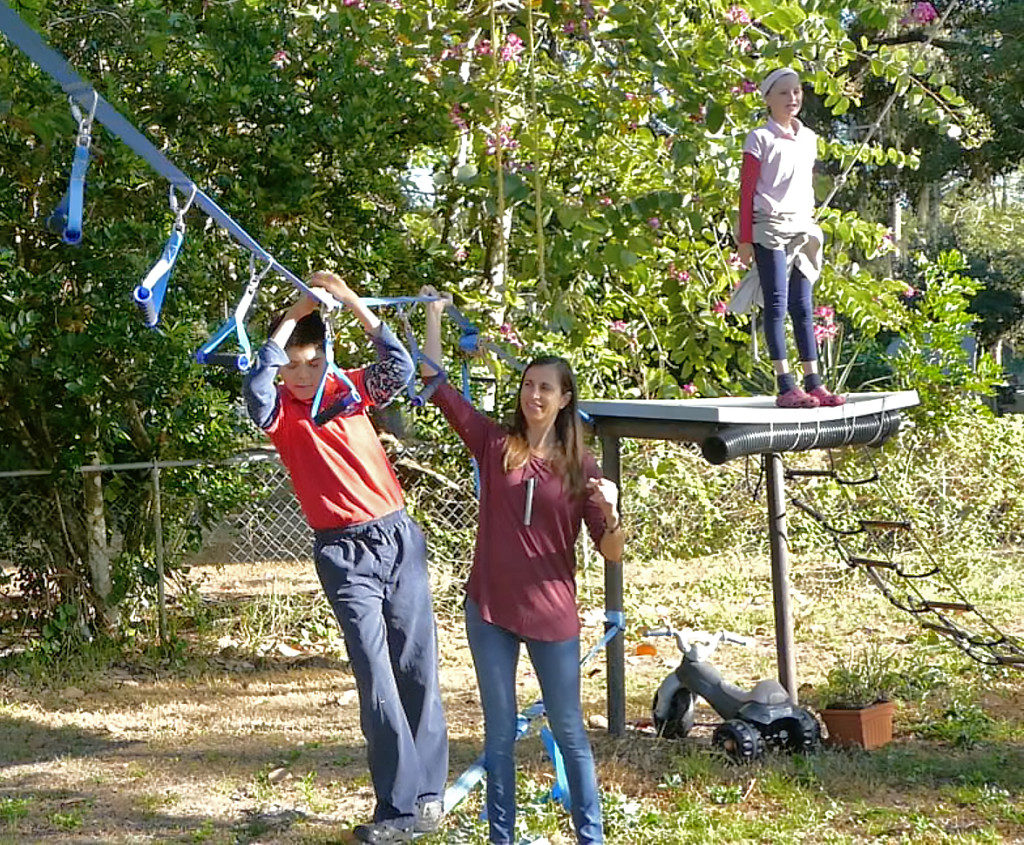
Editor’s note: This piece from Stephanie Conner, who lives in LaBelle, Florida, first published in the Naples Daily News.
My 14-year-old son Eli has been diagnosed with cerebral palsy and other development delays, and he communicates mostly through sign language. A few years ago, he was anxious and struggling in public school. But then he got a state scholarship that changed everything.
Florida’s Gardiner Scholarship for students with special needs is an education savings account. It gives parents the power to create a learning program that is just right for their child, covering tuition, tutors, therapists, technology, curriculum, etc., in whatever combination works best. My husband and I used it to educate Eli through both home education and private school.
Eli was once far behind his academic potential, but now he is gaining ground, especially in reading. The sensory integration therapy he gets through scholarship funding has made it possible for him to learn in more settings, from field trips to classrooms, including the private school he attends part time.
For Eli, the scholarship has been life changing. And it would be life changing for more children if more families had what we have.
In Florida, that might happen.
In coming months, lawmakers will consider a proposal to convert the state’s school choice scholarships into education savings accounts. That will give tens of thousands of other families the kind of control over their children’s educations that we have. Especially now, in the midst of the pandemic, that ability to create as many options as possible makes sense.
Families like mine are sometimes called education pioneers, but we didn’t set out to be. I’m a former teacher, my husband is a teacher, and he comes from a family of teachers, including his father, a former superintendent in Hendry County. All four of our children use choice scholarships.
Our 10-year-old, Madeline, has been diagnosed with bilateral congenital deafness and also uses a Gardiner Scholarship. Our 6-year-olds, Meizi and Gideon, use the Family Empowerment Scholarship, which is available to low- and middle-income families.
We are grateful for both scholarships, but the flexibility of education savings accounts makes them especially nice. Before the Gardiner Scholarship, we considered moving from Hendry County so we could be closer to the therapists Eli needed. We agonized over that possibility, given all the family we have here. But the Gardiner Scholarship spared us.
Instead of relocating, I take Eli to Orlando several times a year for intensive therapy. The rest of the time, I work with Eli and Madeline at home, using the specialized tools we purchased with scholarship funds.
The scholarship pays for private school tuition too. Being in school is excellent for Eli, but full time would be too much. So, Eli goes part time to a loving school near our home, which is happy to offer part-time services.
Meizi and Gideon attend the school full time, while Madeline goes for PE. Last year, Eli attended for PE, lunch and a science/social studies class. This year, he added a keyboarding class, and the school adjusted tuition accordingly. When education savings accounts become more common, more families and schools will be able to benefit from similar opportunities.
Knowing every child is different, I think it makes sense for every child to have a learning program that accounts for those differences. The scholarships available to my family allow us to create that unique learning program, but they shouldn’t be limited to a few families.
Florida would be an even more beautiful place if more families could do the same.


